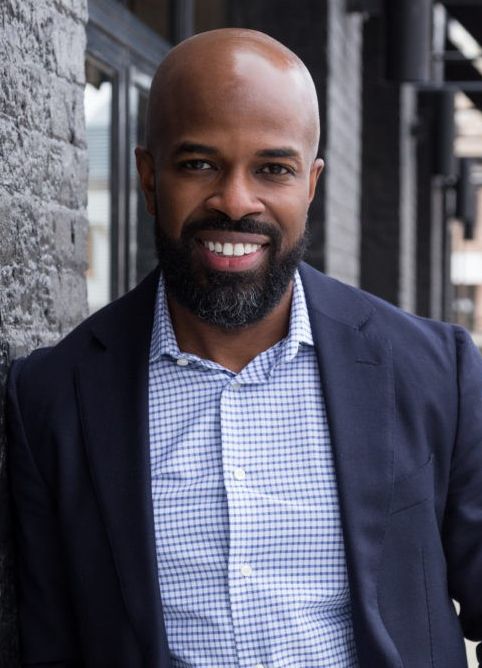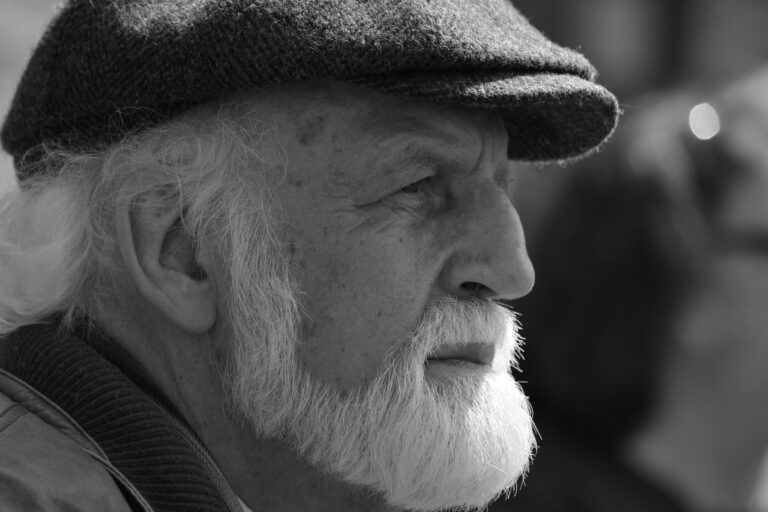
For most technologists, the prospect of starting off a new job by tackling the after-effects of a truly cataclysmic cyberattack would make them think twice. Many, quite understandably, would run for the hills. But for Gary Brantley, it was one of the main reasons he accepted the offer to become the City of Atlanta’s CIO in late 2018.
Many people, he readily admits, will consider him “crazy” for taking such a stance, but to Brantley it was a chance to oversee a rebuild that could genuinely transform a city, and have a truly positive impact on a community.
“I don’t know of any other job in America that allows you to have an impact in such a broad range of areas,” he tells Tech For Good.
The scale of the 2018 ransomware attack on Atlanta is considerable, and is considered to be the largest successful security breach ever suffered by an American city. The city’s computer network was targeted, affecting millions and sending many people back to a manual process.
Hackers’ demands of $51,000 to be paid in Bitcoin were not met, with eventual costs associated with the attack estimated at $17 million. Brantley has gone on record in support of that decision, stating that it is better to spend millions of dollars on overhauling a network, rather than paying cyber criminals.
The attack allowed Brantley to set out aggressive plans to improve the city’s security infrastructure when he arrived, a plan that he says may not have been given the green light had the incident not have occurred.
But key to the plan – above ambitious, costly or flashy initiatives – was stripping everything back to establish a foundation that the city could build upon.
“When something like that happens, you have two areas in need of attention. You have the digital transformation element to it and then on the other side you have a humanistic transformation that needs to happen, a lot of which is embedded in changing your culture,” he says.

“After I arrived, one of the things that I thought we needed to improve on were our basics. It became a key theme that we held onto to get back to our operational principles. I always use the analogy of sports or playing an instrument – before you can think about doing anything extra or special, you have to get your basic fundamentals down.
“We had to make sure we did the right things and we had the right people in the right places. If you don’t have the basic fundamentals down as it relates to IT, then you can’t do anything else.”
As any technologist worth their salt will already know, people are just as important in implementing a successful technology transformation, if not more so. In trying to change behaviours in a public sector environment, Brantley said he was “laser focused” on winning hearts and minds in his efforts to change the culture.
“We all know government entities have turnover at the top layers but underneath that you have employees who have grown up with the system. It’s really about trying to change cultural norms for the better, adopting the ones that need to stay, but changing the ones that need to go,” he explains.
In his own words, that process took a “tonne of conversations” and hours of time to build trust and relationships, navigating through the politics of a governmental organisation to affect change, but also to listen to people and find out what makes them tick.
“You have to sell it, that is a huge part,” Brantley adds, emphatically. “You have to sell the change, you have to sell the vision and have an ability to make people believe, all of which takes a little bit of time.”
An experienced CIO, Brantley describes the overhaul that has taken place in Atlanta as the “fastest, most rapidly adopted transformation in the most complex environment,” which, it is fair to say, are not always qualities you’d associate with public sector organisations.
“I’m not just saying this for the sake of saying this, but I really believe the change has been rapid and it has been extremely successful. To come into a very challenging environment and to really be able to focus on the right things when you have so many areas that people want you to focus on is a win in itself. The city was ready for change after the cyberattack.
“Rapid acceleration, innovation and adoption have taken place during both of the viruses.”
Which brings us to the giant elephant in the room; having fought against a computer virus, Atlanta and the wider world is now fighting against a human one – COVID-19.
Brantley, understandably, is careful to preface everything he says with an acknowledgement of the heavy human toll the virus has had, but is insistent that – as with the cyberattack – Atlanta must use the experience to come out stronger on the other side.
“We are in a time of crisis, but we have to think about how we can take advantage of the situation that we’re in, because it is here,” he says, matter-of-factly.
“This virus today allows us to focus on innovation and it really puts IT in a different arena. It has made us think about how we move from a city that was focused on security – and rightfully so – to now being able to bridge that gap to learn those security lessons and move on to operational efficiencies and new ways of doing business and serving customers across the city using technology.”
It is undeniable that Brantley’s time as the City of Atlanta’s CIO to date has been a tale of two viruses. But if there is a silver lining, it is that the lessons learned and culture change driven by the computer virus has made the city better equipped to deal with the pandemic, which has been the catalyst for an increasing number of phishing attacks worldwide.
“Because of the work we did to improve the basics and fundamentals after the 2018 attack, we are a lot more agile and flexible around different security practices, whether in a confined environment or in an unconfined environment,” he says.
“We obviously didn’t know this was going to happen but what we did notice was that we were focusing on the right things and building up a lot of muscle memory through repetition, through intentional focus. Now we have different challenges, so sometimes they are the same problem, but posed in a different environment.
“Yes, the phishing attacks are happening a lot more because of the ability to use the pandemic to take advantage of the situation, but it is still a phishing attack, it’s just being done in a different environment than we’re used to having it done, and neither is the patching of our equipment.”
Brantley is clearly proud of the work he and his team have carried out and, in his own words, considers Atlanta to be the “leader of the pack,” showcasing the true potential of public sector technology teams.
“Government was viewed as a slow part of that process as it relates to technological changes but we now know that we can move just as fast as anyone else and the biggest lesson learned is – man, look at how great we can be if we get out of our own way,” he says.
While it can be difficult to imagine a post-COVID world, that is exactly what public organisations must do, with Brantley and his team of technologists working fastidiously to ensure momentum built up before the coronavirus struck is maintained.
Key to his longer-term mission as Atlanta’s CIO is to extend valuable initiatives and programmes to communities that have previously been under-served when it comes to the benefits of technology.
“Our focus is on learning those security lessons and moving on to operational efficiencies and new ways of doing business and serving customers across the city using technology,” Brantley comments. “It has really allowed us to put our attention back on to where it needs to be, which is dealing with inequalities across the city in our under-served communities – how can technology be a big part of that solution?
“We want to address gaps in proficiency, which will enable many citizens in our under-served communities to enhance their skill sets and be ready to work in technology, which is ever-changing and a quick environment.
“That doesn’t mean you have to be a technologist, that means you really need to be able to understand services we’re providing that use technology. I think a lot of times we jump ahead, and we want to change the government to be this high-tech environment, but at the end of the day, you want to be able to meet your constituents and residents where they are.”
To that end, Brantley and his team are working with several large Fortune 500 companies and local universities as part of its smart city initiative, with the focus changing from just integrating devices and technologies into communities to ensuring citizens can access initiatives and programmes to give them the skills they need to work in today’s technology economy.
“It’s not just about turning a computer on and off; we want to drive real value. We want to see residents come out with cloud architecture qualifications, so they can work for the likes of Salesforce, AWS and Microsoft. So, we are partnering with a lot of those large organisations to implement those impactful programmes.”
When you lose a fight, you should come back better and we see that everywhere. The only way to get better sometimes is to take defeat and learn from defeat and Atlanta is a good example of that
The Smart Atlanta programme is also built on data protection, privacy protection, policy protection and making an open data portal that allows for streamlined communication and interoperability to ensure residents can access online services.
The City IQ programme is another that is close to Brantley’s heart, taking the combined benefits of technologies such as artificial intelligence (AI), machine learning (ML) and the Internet of Things (IoT) to address key challenges faced by Atlanta’s urban population, such as traffic management, healthcare and energy.
“When you talk about AI and ML, you’re talking about making sure we have a digital infrastructure that is living within our streetlamp posts and also in the cloud,” he says. “Those are areas we’ve been working on. And like many other cities, our camera readers that have been installed on our public roads are capturing traffic optimisation and vehicle metadata. Those are some of the areas we are really focussing on.”
Utilising emergent technologies to further these smart city efforts, while ensuring the vital technology infrastructure that is relied upon by its almost half a million residents is running smoothly, would be enough to keep any technology team busy.
But combined with the double whammy of a large-scale cyberattack and a once-in-a-century pandemic, Brantley and Atlanta’s technology experts have found their backs against the wall. However, its CIO is adamant that the city will ultimately win the battle, thanks in large part to his team, for which he reserves special praise.
“When you lose a fight, you should come back better and we see that everywhere. The only way to get better sometimes is to take defeat and learn from defeat and Atlanta is a good example of that,” he concludes as the conversation draws to a close.
“My team has been great. When you have been through the events they have been through, you can tell a lot about them. They are people who will go to war with you and that’s how I look at it, they have been outstanding. They have been pushed and challenged in a lot of areas both personally and technologically and they have really risen to the challenge in order to get that done.
“Atlanta is known as being a resilient city and my team has adopted that and we believe in ‘Atlanta Strong’, they exemplify ‘Atlanta Strong’.”



